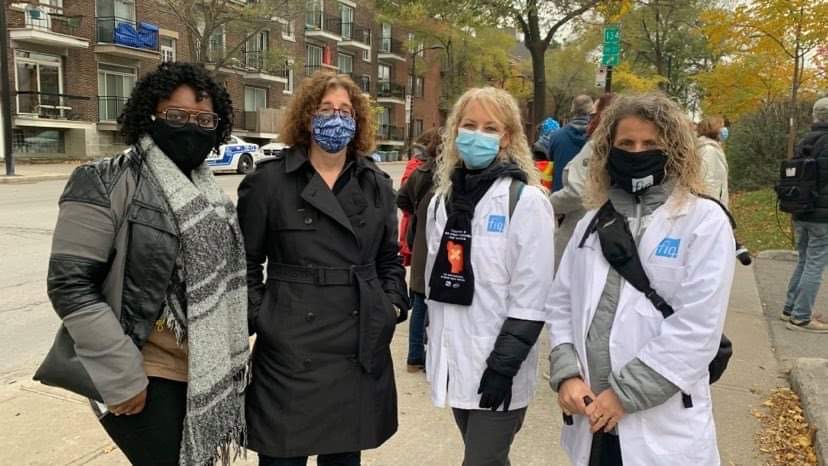
The government is easily confused
For months now, the FIQ’s negotiation team has been explaining non-stop to the government that the solutions we are proposing to reduce the work overload are interrelated. For example: implementing safe healthcare professional-to-patient ratios in CHSLDs, making full-time more attractive and standardizing the regular work week.

Remember that in early October the government told the media that negotiations were progressing well. It said it was open to solutions to reduce the workload but at the bargaining table the opposite was true.
However, the week of October 19 marked a turning point in negotiations thanks to a strong demonstration of healthcare professionals’ discontent. They blocked the Quebec and Jacques Cartier bridges and sent a message of distress: “Enough is enough!”
We joined in the demonstration to experience this unique moment, an opportunity to collectively and simultaneously express our exasperation in Quebec’s two biggest cities. It was a very energizing experience. We were all connected and proud to stand up for our demands!
Two days later the FIQ pulled off another a surprise action when it released a list of the worst ranked CHSLD ratios. Once again, we shone a spotlight on the dangerous conditions healthcare professionals are forced to care for seniors in. And who is responsible? The governments who managed the network with budget cuts for the last 20 years!
Sounding the alarm
Our mobilization in recent weeks sounded the alarm. We have to negotiate acceptable working conditions for healthcare professionals because their work overload has become truly unbearable and even dangerous for both them and the population.
The health network has been caught up in a vicious cycle of work overloads for years, which has caused healthcare professionals to leave or take part-time positions to protect their health. We need to seize this unique opportunity to change the health network and attract and retain healthcare professionals. The employer party needs to pick up the pace and help us to reverse this trend by implementing sustainable change!
Without a major re-investment, we all risk watching our public health system crumble—the government must act now!
Our daring actions were successful: the Treasury Board president Sonia Lebel’s public statement at a press conference on October 22 proves it. She said she heard us and that she gave her negotiators new mandates.
To this the Negotiating Committee says: “Great! Let’s see it! Show us that you mean it!” Since October 23, we have been back at the bargaining table to hear the Treasury Board’s new mandates and see if the employer’s offers will be worthy of healthcare professionals.
Will they put their money where their mouth is? We’ll find out very soon!